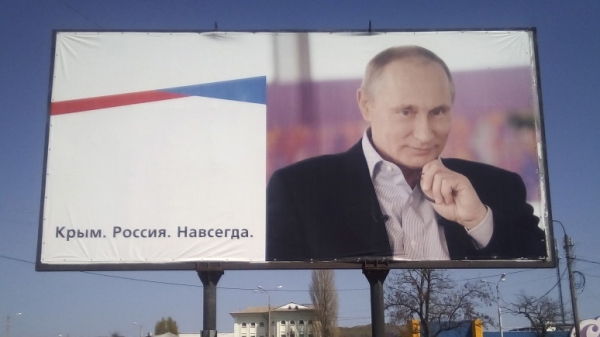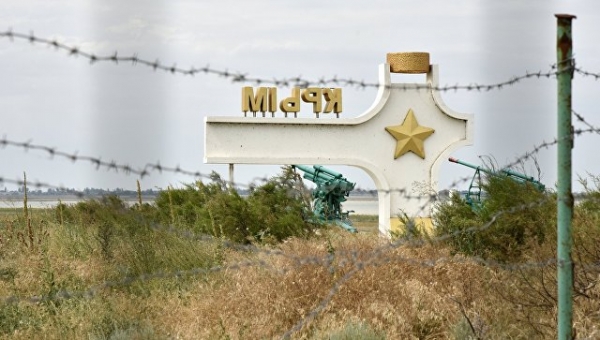The aggravation of the situation in Ukraine, initiated by Moscow, has excited the West, forcing many to ponder the true motives of Russian President Vladimir Putin, writes The New York Times in an editorial. In such circumstances, the Western allies, it is extremely important to preserve the same political direction and to prevent the abolition of anti-Russian sanctions as long as Putin does not fulfill the full “the Minsk agreements”, say the journalists of the American edition.

Two years later, after Russian President Vladimir Putin “annexed” Crimea and began to destabilize Eastern Ukraine”, the region is again aggravate the situation, writes The New York Times in an editorial. As noted journalists, this aggravation comes from Russia, which, according to media reports, probably preparing for the “next military conflict with the Pro-Western government of Ukraine”.
The truce between Ukrainian forces and Russia-backed separatists and a half years ago, and so “slowly destroyed”, however, Mr Putin “with his recent comments only increased the tension,”write the authors of the material. In particular, the Russian leader accused the Ukrainian authorities of trying to organize terrorist attacks in the Crimea, and vowed not to leave this without a response, remind the journalists. In addition, concern in the West has caused and initiated by Moscow in may, the military build-up near the Northern, Eastern and southern borders of Ukraine, and Mr Putin’s visit to a military airfield near Sevastopol, reminds the team of the NYT.
Vladimir Putin is known for its unpredictability, so the last steps of Russia has caused many to wonder what is going to make the Russian Presidentto grab more territory from a sovereign state,” or simply to intimidate Western partners, securing diplomatic advantage, the authors write. On the one hand, everyone knows that Putin “likes to keep his opponents in suspense”, and Russia’s actions can be regarded as an attempt to strengthen its position, in order to achieve the lifting of Western sanctions; however, such rational considerations did not prevent the Russian leader to start a war with Georgia in 2008 and to intervene in the Syrian conflict and any provocation, whether real or fictitious, can lead to serious consequences, says journalists.
According to the editorial The New York Times, yet all the evidence suggests that Moscow is still trying to artificially escalate tensions in order to receive future benefits. As emphasized by journalists, Russia’s economy still remains in a serious condition, and getting involved in more large-scale conflict in Ukraine, risking to incur even more severe economic measures from the West, Putin most likely will not. In addition, right now when the EU is concerned primarily with the refugee crisis and the secession of the UK, and the US ‘ attention is riveted to the presidential race, there was a perfect moment for Russia to continue to destabilize Ukraine and threatening to start military conflict, to achieve political goals — for example, to seek to make the best Moscow amendments to the “Minsk agreements”, says the authors.
Whatever were the motives of Moscow, and the United States and Europe now need to keep anti-Russian sanctions and to remind Mr. Putin that they will not remove until, until he will help to return Ukraine to the world, convinced the NYT journalists. This applies in particular to the EU — despite the fact that Brussels is likely to extend economic measures against Russia this year, individual members of the EU want to resume economic relations with Russia without waiting for the execution of the Minsk agreements,” they wrote. “Mr. Putin expects him to yield, but to encourage him for the aggressive actions it is impossible” – warn the authors.








